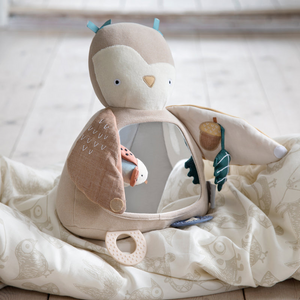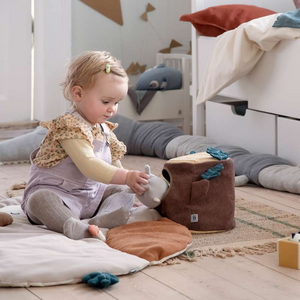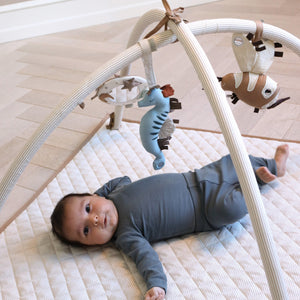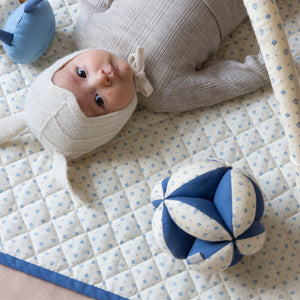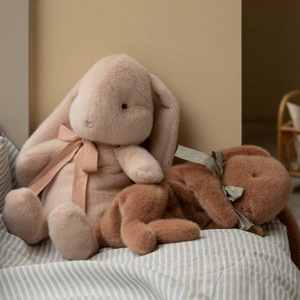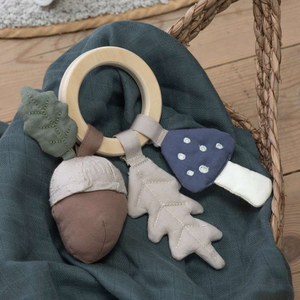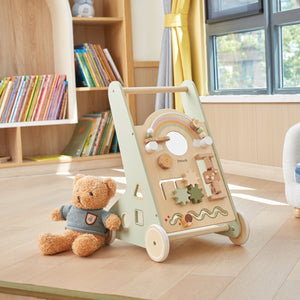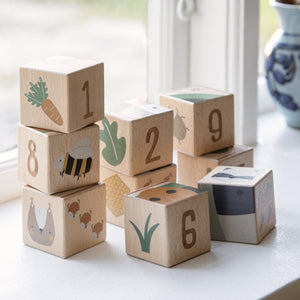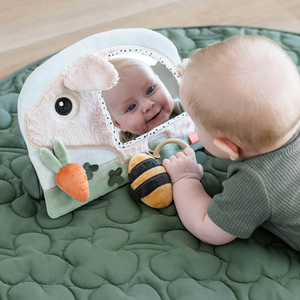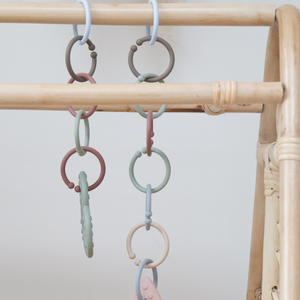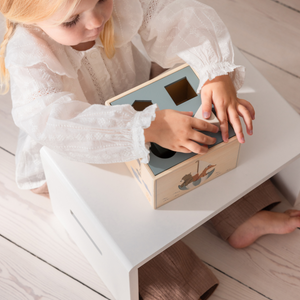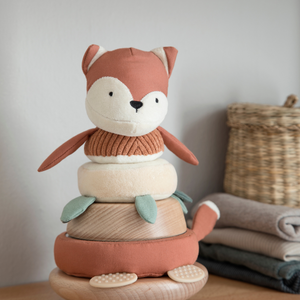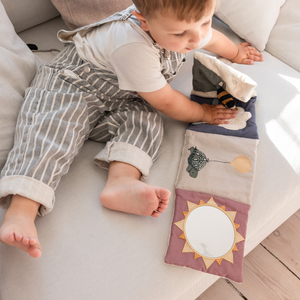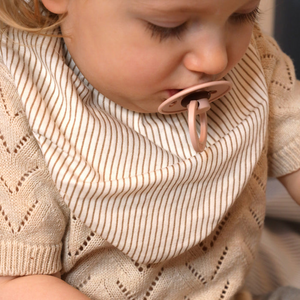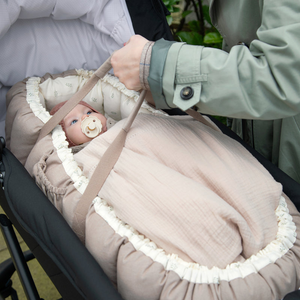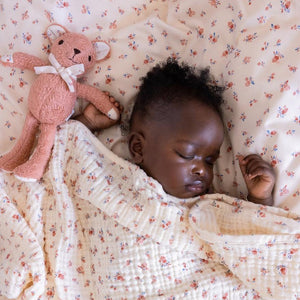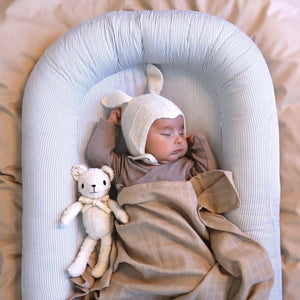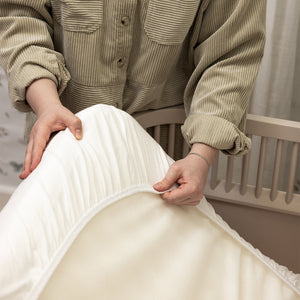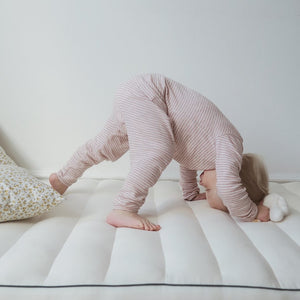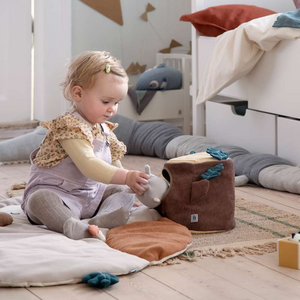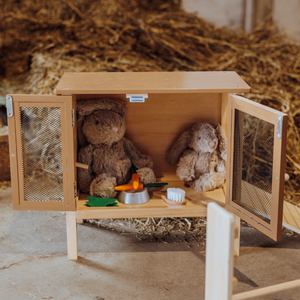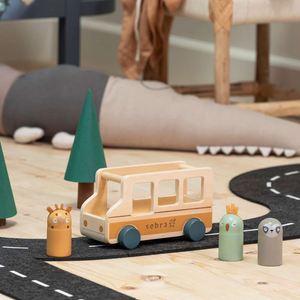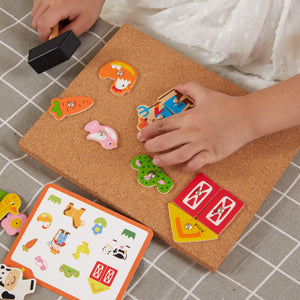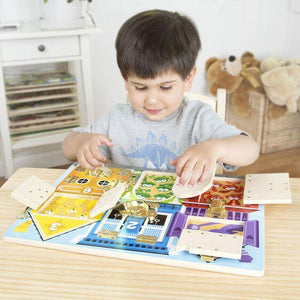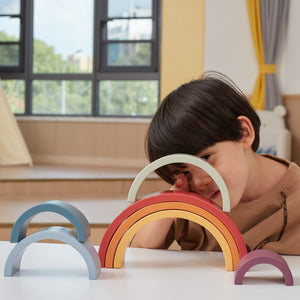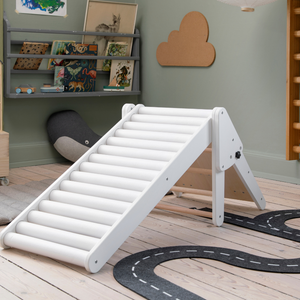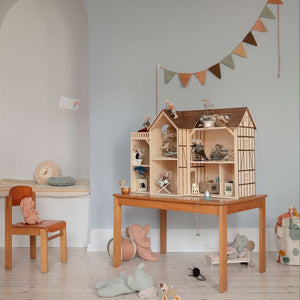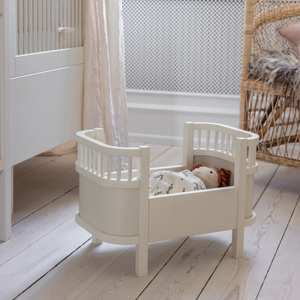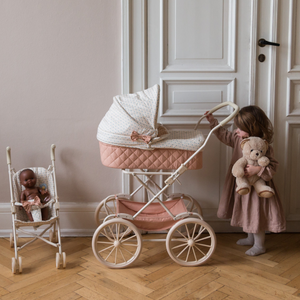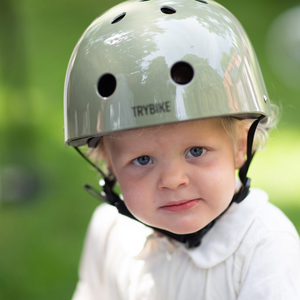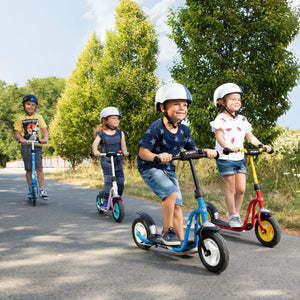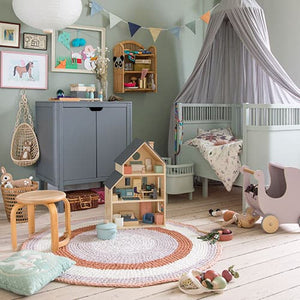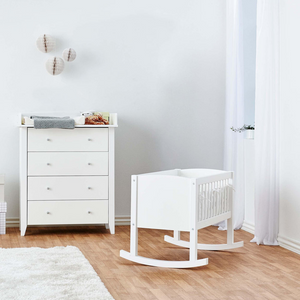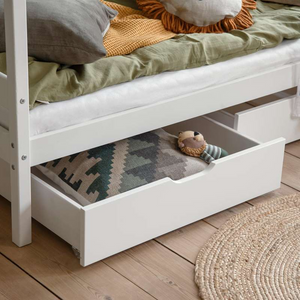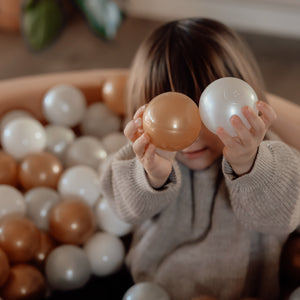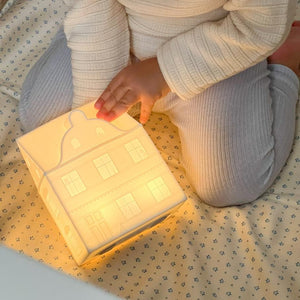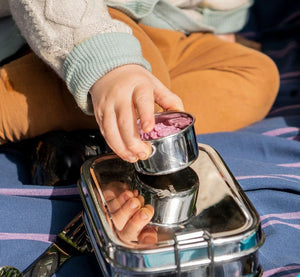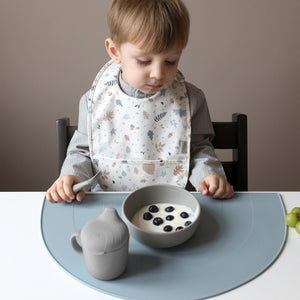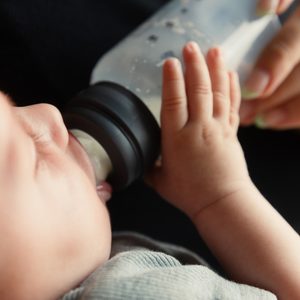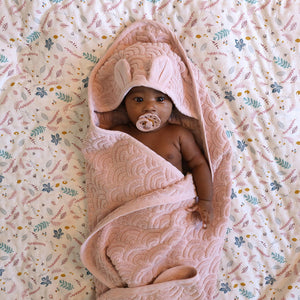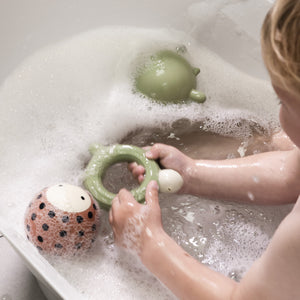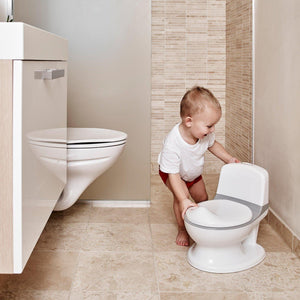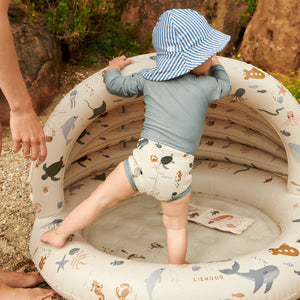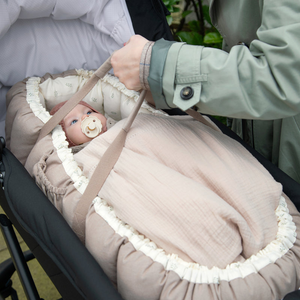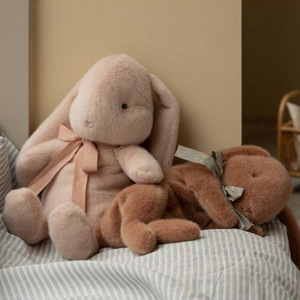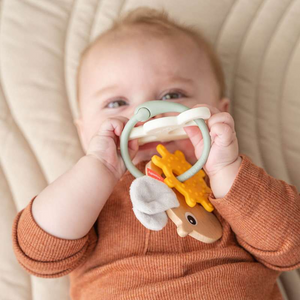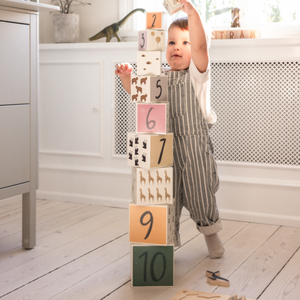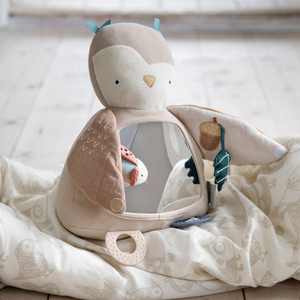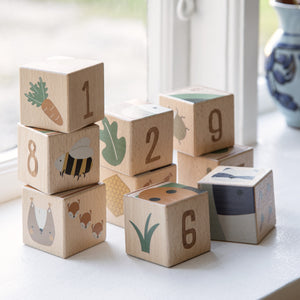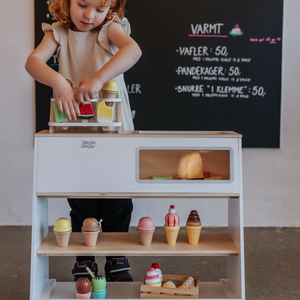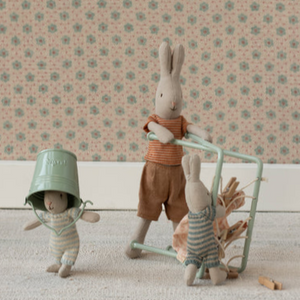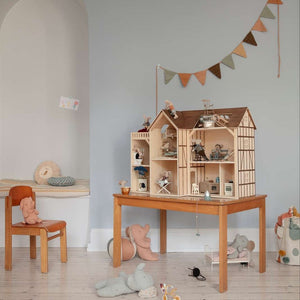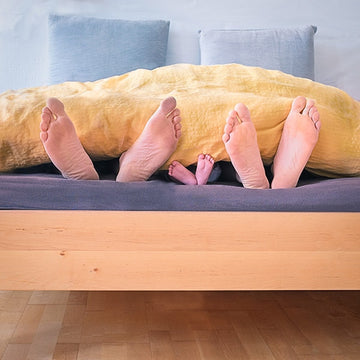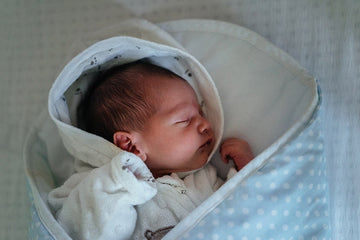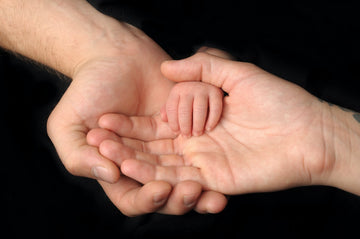As new parents, you are all too familiar with what it feels like to be in constant sleep deficit. We humans go through shorter and longer periods in life where we experience sleep deprivation.
It is important for both our physical well-being and, not least, our mental health that we ensure we get enough hours of sleep each night.
Below you can read more about the different sleep stages, and you will get good advice on how to help your child sleep better at night, so he or she can wake up refreshed and ready for the day ahead.
That's why sleep is crucial for our well-being
If you have gone through just a few days without an optimal amount of sleep, you become aware of how much nighttime sleep matters. You have less energy to be physically active, and your concentration ability gradually deteriorates the more sleep you lack. It is not only you that the missing hours in dreamland can affect.
Your surroundings can be influenced by your fatigue when you have a shorter fuse, and when your mood is not at the same level as it usually is.
When we sleep, the impressions and learning from the day are digested and processed. Even though the body is at rest, the brain is working at full capacity. It prepares us for the coming day, and it makes us mentally ready to handle all the tasks we will face both privately and professionally.
Know the 4 sleep stages
Sleep is a process that occurs in 4 stages. They run in a cycle, and each has its own function. Our brains have adapted through evolution, meaning that the sleep stages of new parents are utilized more efficiently since they have fewer hours to sleep.
When you wake up feeling fresh and rested, you have gone through the 4 stages multiple times during the night. 1 cycle can last between 90-110 minutes.
Both children and adults go through the 4 stages. However, the duration of each cycle varies according to age.
Stage 1: light sleep (5-10 minutes)
As you are on your way to falling asleep, you will be entering the first and shortest stage. We often refer to this first, light stage as the point where we 'doze off'.
Your body becomes more and more relaxed, and your muscles loosen.
It is in this stage that many of us can experience small jerks in the body. It is a sudden movement that can cause us to wake up for a brief moment before we drift off again.
The small jerks happen when the body has difficulty controlling the transition from activated muscles to total relaxation.
Stage 2: on the way to deep sleep
Stage 2 is an extension of the first, light sleep stage. During stage 2, your body will become more and more relaxed. The biggest difference between the first and second stage is seen in brain activity. In stage 1, you are partially conscious. You will respond to sounds in your environment, and you will find it easy to wake up.
In stage 2, brain waves begin to slow down, and you will gradually lose contact with your consciousness.
On average, an adult spends about 50% of their total sleep time in stage 2 each night. Children spend less time in this stage.
Stage 3: deep sleep
This stage is one of the most important for the body, physical development, and our overall health. It is here that the body uses energy to rebuild new cells, repair skin and hair, strengthen the immune system, and regulate metabolism.
In children, it is at this stage that growth hormones are produced. Therefore, it is crucial that they get many hours of sleep each night to reach this stage.
If you are awakened from this stage, you may experience confusion. It can take up to 30 minutes after waking from sleep stage 3 before you feel like yourself. The brain is running on half power, and it needs time to readjust to reality.
Talking or going to sleep will occur at this stage.
Stage 4: REM sleep
REM sleep is where we dream. REM stands for "Rapid Eye Movement," which refers to the eyes moving behind closed eyelids. This happens because the brain is extremely active. It processes the impressions and sensations we have experienced throughout the day.
This stage is important for our long-term memory and ability to store information and learning. Information is transferred from short-term memory to long-term memory so that we can build on our development and learning the next day.
We sleep more superficially in stage 4 than in stage 3. Therefore, we often find ourselves waking up in the middle of a dream.
Children develop every second during their waking hours. They develop social skills, motor abilities, communication skills, and the ability to think logically and abstractly. This explains their need for many hours of sleep each night. They need a long period in stage 4 so that the day's learning can be stored stably and optimally in the brain.
Children spend about 50% of their sleep time in stage 4 (for adults, it is 25%).
How many hours of sleep your child needs
Children need more hours of sleep than adults do. Nothing happens regarding the child's further development if he or she is allowed to stay up longer on their birthday or Christmas Eve.
You should adjust your child's sleep duration according to their age:
- 1-4 weeks: 15-18 hours
- 1-12 months: 14-15 hours
- 1-3 years: 12-14 hours
- 3-6 years: 10-12 hours
- 7-12 years: 9-11 hours.
These are the number of hours you should strive for your child to sleep each day (the indicated number of hours also includes naps).
There are various ways you can optimize sleep quality so that your child sleeps deeper and for longer periods.
The more stable the sleep rhythm is, the easier it will be for your child to fall asleep.
Good tips to help your child sleep quickly and soundly
- The bed should be arranged for sleeping: When the bed is only used for sleep (and not for play), the child will associate the sleeping furniture with going to bed. If the child has experiences of also playing in bed, it can create mental confusion. Ensure that the bed's arrangement with a couple of stuffed animals and soft bedding invites physical calm and relaxation. At Mammashop, you will find a wide selection of junior beds.
- Create a healthy indoor climate: If the room is too warm or the air is heavy, it will be difficult for the child to settle down. Air out the children's room every day. In the summer, it may be a good idea to do it just before bedtime. The temperature should be between 15-22 degrees.
- Avoid activities before bedtime: Playing and games will activate the brain. Create a good evening routine with calm activities such as a quiet puzzle, a cozy book, or relaxing music.
- Stick to a good bedtime routine: Whether to sing a lullaby or read a little bedtime story depends on the child's personality and wishes. The most important thing is to establish a good and recurring routine that the child finds comfort and calm in.
- Remember the calm and gentle awakening: Most parents are aware of the importance of a good bedtime routine. If being woken up is a hectic and confusing experience for the child, it can ruin their nighttime sleep. Make sure to have calm mornings (whether it's a weekday or weekend). A good morning routine is just as important as the good bedtime routine.


